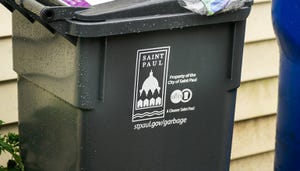State of Washington Works to Clear Obstacles to Car Battery Recycling
Vehicle battery recyclers in the Evergreen State may soon face fewer fees and regulations if those involved in rulemaking with the Washington State Department of Ecology have their way.
That’s not a typo.
A widespread assessment of the agency’s rules about three years ago was the impetus for revisiting the nearly 25-year-old statute governing state-mandated vehicle battery recycling, says Kyle Dorsey, rules & policy coordinator for the Waste 2 Resources Program with the Washington State Department of Ecology.
“The agency is obligated to be a good steward of our rules, and this rule has not been updated since 1991,” Dorsey says. “If you read the rule, you will find that there are references to phone numbers and addresses, and other information and agencies that simply no longer exist. They're wrong. They're erroneous. Those need to be corrected, if nothing else.”
Beyond that, the current registration system for battery recyclers is handled by the state’s Department of Revenue, which then sends the information to the Department of Ecology. This system creates an unnecessary middle man and complicates the yearly process, he says.
“This all goes back to the governor's desire for us to have a more efficient rule-making process,” says Dorsey, adding that there is a $19 annual fee when a business registers to be a battery collector. “We can eliminate that process by creating a one-time registration on Department of Ecology webpage, free of charge. We think it's a good thing to clarify the language of the rules which is difficult to understand and then get rid of the for-fee registration program. We can do it more efficiently.”
The statewide vehicle battery recycling program has been highly successful with a nearly 100 percent collection and recycling rate. In fact, an estimated 1.2 million batteries were collected for recycling in 2013, based on tonnage reports.
“That number has been relatively stable, with some shifts due to commodity prices and/or vehicle sales,” says Andrew Wineke, a communications manager with the Department of Ecology.
Dorsey says a core charge was instituted to encourage people to bring the battery back to the point of purchase. The charge, which is applied during a retail sale, is to be refunded to the purchaser when a used battery of equivalent size is offered in exchange.
Outside of retail establishments and authorized hazardous waste programs, collectors must be authorized to accept vehicle batteries for recycling or transportation. That means salvage yards that acquire batteries in junk or damaged vehicles and any recycler who is not part of the local government, Dorsey says.
“The bulk of people who handle batteries are retailers and we don't require them to register,” he says.
The Department of Ecology has issued a notice of rule changes to more than 2,500 entities and expects to work through a simple revision process by March 2016. The department doesn’t expect much push back against its effort to simplify the registration process and make it free.
“In the last month, we've really started getting the word out there and so far all we have had is a positive reaction,” he says. “People are happy. It's less regulation, and it costs less. It's everything that you don't expect in a rule.”
About the Author(s)
You May Also Like


